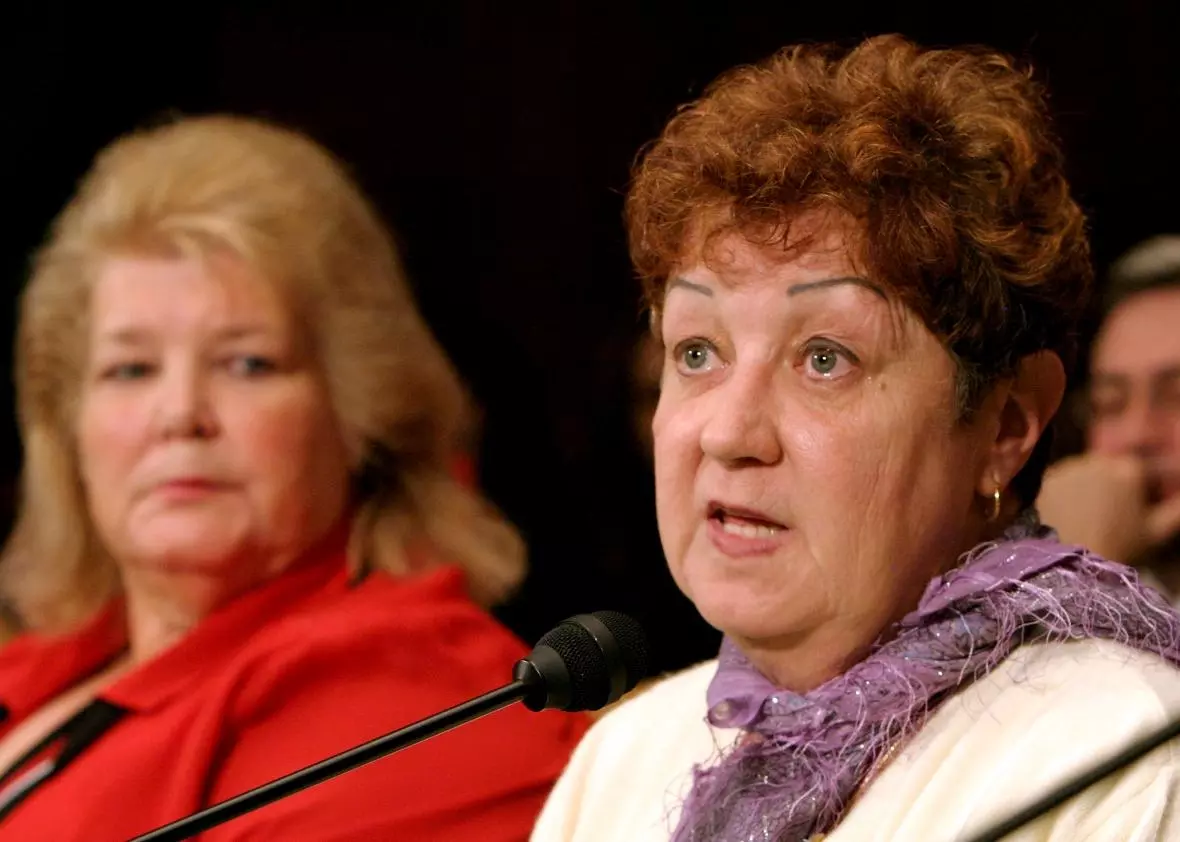I never truly knew Norma McCorvey, who died last week at the too-young age of 69.
Friends of mine have memories of time spent with her, stories of their interactions with her. I have one.
My daughter Lexie and I were in Dallas for a conference in 2007, if memory serves; I had my LifeTrends booth (LifeTrends is now part of Heartbeat International) and conferees had the afternoon “off” to see the city.
Booths were open, but the exhibit hall was nearly empty. So, Lexie—age 12—and I visited other booths to chat with fellow vendors. At one sat Norma McCorvey, by herself. No one was around and I saw a teachable moment. My daughter could visit with an historical figure.
We went over and as we exchanged pleasantries I noticed Norma seemed tired. She was kind and gracious and while I don’t recall much of the conversation, I remember her as mostly quiet and reserved.
As I introduced Lexie to Norma, I told Lexie of Norma’s great courage in speaking for life. I would dwell on her past with Lexie later, for context. Norma smiled.
Looking back, what struck me most is that she seemed to be carrying the burden of an extremely hard life. Someone else can write all of the biographical details, and there are plenty of places to read information on her life strewn throughout the internet for all to see.
In our brief conversation with Norma however, I didn’t get details, histories and a litany of good and bad about the person sitting behind a small table. Instead, I got to see what it looks like when someone badly broken is working to make things right.
We know of McCorvey’s conversion to faith, and of her conversion to the pro-life mission. But likely none of us knows of her battle scars, of the pain; of the constant struggles within herself to make things right.
Tweet This: "Norma McCorvey did what she could. At least she tried." #prolife @KirkWalden
An article by Nevada Right to Life President Melissa Clement sums up the struggles well, and quotes McCorvey as saying, “I am responsible for the death of 50 million unborn babies.”
This is one of those half-truths the enemy loves to drop on us. The truth is, if Norma had not been in her situation back in the early 70s, attorney Sarah Weddington—who successfully argued the infamous Roe v. Wade case in front of the Supreme Court—would have found someone else.
And if not Sarah Weddington, there would likely have been another lawyer at another time.
So no, we dare not rest the lives these children—whatever the number is today—on the shoulders of Norma McCorvey. Or on Sarah Weddington. Or on the U.S. Supreme Court. Each life lost is the result of complicated choices made by all types of people, many in desperate situations.
One thing I know however; Norma McCorvey did not cause any of this. She was but a symptom of a sickness Americans faced—and still face—in this country: We chose then—and as a society we choose now—to believe some lives are more important than others. This can, and will, change.
Norma McCorvey sat and talked with me and my daughter that day as one attempting to change this. She probably made mistakes along the way, as we all do. But she was trying. Good.
In our own ways, we are all trying. In a quiet moment in 2007, Norma McCorvey appeared to be battered, bruised, tired—and alone. But she was still trying.
Looking back, I wish I had done something to help her loneliness. It would have been a good lesson for my daughter, and likely would have taught me a thing or two also.
If there is a lesson for me in the loss of Norma McCorvey, it is this. In her own way, Norma McCorvey did what she could. At least she tried.
While I am still here, I should simply do what I can—just like Norma McCorvey. Even if we struggle, even if we don’t get it right, even if the bruises should come, just keep trying. It’s a lesson worth learning, every single day.
Kirk Walden is a senior writer with Pregnancy Help News, an Advancement Specialist with Heartbeat International and author of The Wall. He also blogs at www.KirkWalden.com. For banquet speaking engagements,







